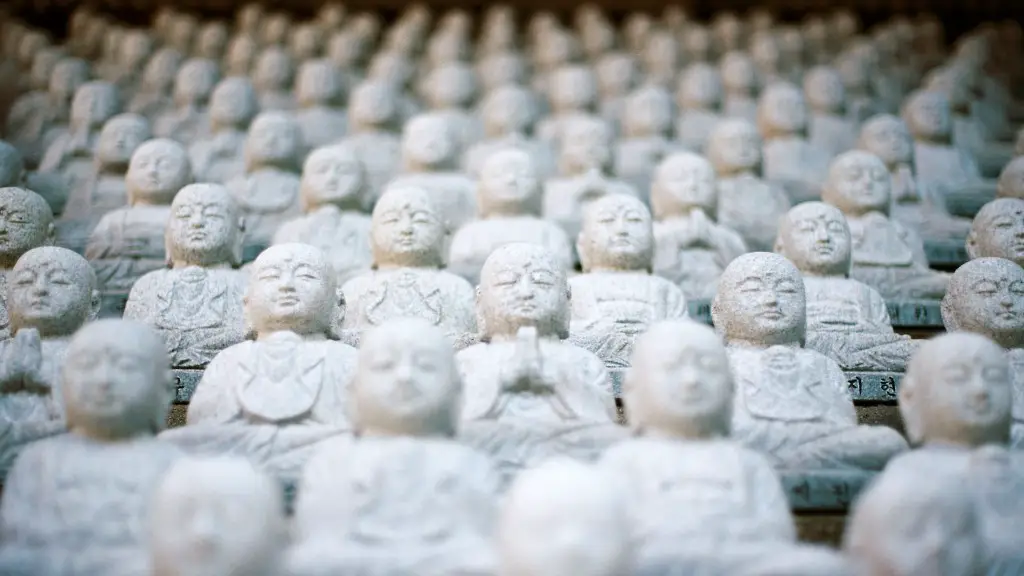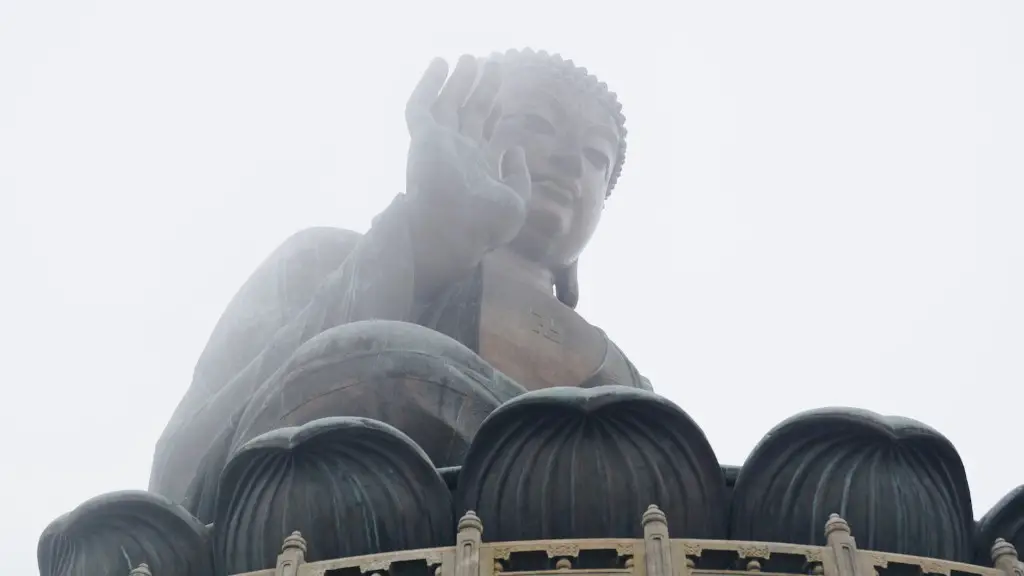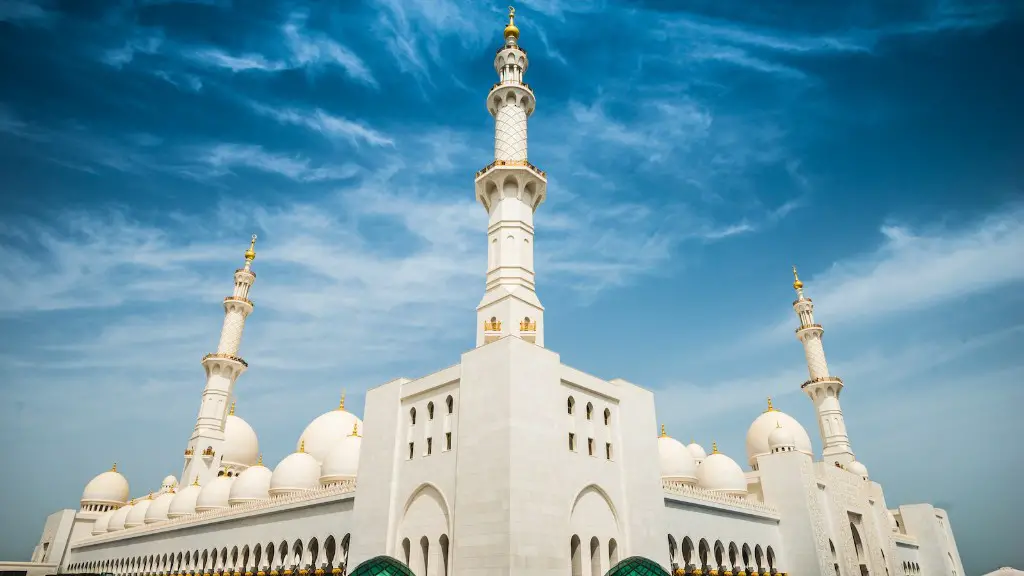Introduction
Cows have held a special place in Hinduism since ancient times. Hindus perceive cows as sacred animals, and their significance is evident in many aspects of Hindu culture. Through their contribution to the religious, economic, and social life of Hindus, cows are pronounced with a revered symbol of life, fertility, abundance, and divinity. In this article, we will explore the various reasons why cows are so important to Hinduism and why Hindus are so devoted to them.
In Hindu Scriptures
Cows are deeply respected in Hindu scriptures, and are often referred to as the ‘mother’ of human existence. In the Rigveda and Mahabharata, cows are referred to as ‘asses of the gods’ and ‘source of sustenance’ due to their role in providing nourishment. Other Vedic texts state that cows were important in early aryan sacrifices, indicating their importance to the religious practices of early Hinduism. Cows are also mentioned in the Upanishads as symbols of generosity and prosperity.
Symbology Of Cow
Beyond religious scriptures, Hindus view cows as symbols of wealth and fertility. Cows are generally associated with the earth and the moon, symbolizing the connection of the earth and the cosmic forces. Additionally, Hindus view the cow’s horns as symbols of the divine trinity that includes Brahma, Vishnu, and Shiva. This association of cows with divinity has been carried out in Hindu culture and helped establish their sacred status.
In Economic Life
Not only do cows represent divinity and wealth but they also play an important role in the everyday lives of Hindus. Cows provide milk and ghee, which are essential ingredients in Indian cooking and can serve as a useful source of income for poorer families. Additionally, Hindu farmers rely on cows as an important tool for farming and as a part of their daily lives. By using cow ploughs, farmers can increase their yields from the land and generate a livelihood from their activity. The role of the cow in day-to-day economic life of Hindus cannot be understated.
In Social And Cultural Life
Cows are also deeply ingrained in Hindu social and cultural life. Hindus routinely honour cows with celebrations and festivals. During times of distress, cows are often offered as gifts as a symbol of respect and admiration. In some parts of India, cows are also present in religious ceremonies such as weddings. These ceremonies are seen as a way to honour the sacred animals and bring good luck.
Animals Rights
Hindus also view cows as similar to humans in terms of their needs, and strive to protect cows from exploitation or cruelty. This is why the Hindu community tends to oppose activities such as the sale of beef, and will actively strive to protect cows from harm whenever possible. These animal welfare initiatives are part of the core values of Hinduism, and serve to remind Hindus of their social responsibility towards the sacred cows.
Conservation Of Indigenous Breeds
The conservation of indigenous breeds of cows is another way that Hindus honour the sacred animals. Hindus view cows as an essential link to the ancient roots of their religion, and strive to preserve traditional breeds in order to propagate their culture. To this end, many Hindu organisations have initiated cow conservation programmes, which aim to promote indigenous cow breeds and ensure that they remain vital to Hindu culture and practice.
Conclusion
In conclusion, it is clear that cows are integral to Hindu culture, and form as an important part of their religious, economic, and social life. Cows are seen as sacred animals and are honored through religious texts and festivities. Hindus also strive to protect cows from exploitation and to conserve the more traditional breeds. The significance of cows in Hinduism cannot be overstated, and their role in Hindu culture remains as relevant today as ever.
Relation To The Earth
In Hinduism, cows are seen as connected to the earth. Along with the cow’s horns symbolizing the divine trinity, these animals are thought to bring abundance and fertility to the land. Hindus themselves state that their own prosperity and well-being is linked to the fertility of their cows. Similarly, in many Hindu villages, farmers will offer agricultural products to the cattle in exchange for their services.
In the ancient Vedas, where cows are acknowledged as the life-giving, sustaining force on Earth, they are even referred to symbolically as the ‘Aditi’, or ‘boundless mother’. Thus, cows are seen as embodiments of the Earth’s fertility and protectors of its bounty.
It is also important to note the close understanding of the environment that Hindus possess. As such, they avoid activities such as over-breeding cows and excessively culling the population, as both of these can have a devastating impact on the environment and natural ecosystems.
Link To The Moon
Within Hinduism, in addition to the Earth, cows are strongly linked to the Moon. Ancient references to cows in the Vedas make clear that this connection was already in place for many centuries. The moon is seen as being directly related to the fertility of the land and the sustenance of all life. This is because of its important role in the regulation of water and providing nourishing rainfall.
The moon is also seen as one of the most auspicious forces in Hinduism, with the waxing and waning of the moon associated with the life cycles of the mind, body, and soul. As such, cows are seen as directly connected to the Moon’s energy, since its lunar influences are thought to bring about the success of the people and of their herds.
Cows in Hindu mythology are also associated with the story of Chandra, the cow-headed deity and the Moon God. Chandra is brought to life as an embodiment of both the moon’s power and purity and of the cow’s devoutness and humility. Thus, cows and the Moon become inextricably linked not just in terms of the land’s fertility, but also in terms of the spiritual life of humans.
Abomination Of Beef Eating
The concept of cows being above humans is so entrenched in Hindu thinking that the mere act of eating beef has become an abomination. This is undoubtedly due to the traditional worship of cows in their society, with the cow becoming a living symbol of divinity and purity throughout India.
Hindus not only refrain from eating beef, but actively oppose its sale. This is in part due to their ethos of ahimsa, meaning ‘non-violence’, in which animals should be respected and protected. In many cases, Hindus have campaigned against the slaughter of cows throughout India, even leading to some places in the nation to be declared as cow sanctuaries.
Consequently, Hindu scriptures themselves enshrine the notion that cows should not be harmed in any way. In some instances, illegal activities, such as the smuggling of cows, can even be seen as grave enough to incur a curse upon the perpetrator.
In a way, cows are seen as belonging to the gods, and thus killing them would be akin to defying divinity itself, a sin that many Hindus are deeply conscious of.
Political Implications
Beyond the religious implications, cows have long been used as symbols of political power. In many parts of India, the ownership of herds of cows has become a sign of wealth and influence. Those with cows have been able to influence politics and decision making more than those who do not. This has, in some instances, led to some tension between cow-owning communities and those who have little to no control over their cows, such as the Dalits.
At the same time, cows have also been used as symbols of resistance and rebellion throughout Indian history. In the 19th century, for instance, the murder of a cow often served as a signal for rebellion against the oppressive British colonial forces. This close relationship between cows and politics continues to be seen in India today, particularly in the cultural and political struggle between the Hindu and Muslim communities.
Most recently, cows have been used to further the political agenda of Hindu nationalists and groups like the Rashtriya Swayamsevak Sangh (RSS). In an effort to forge a unique national identity, they have framed cows as national symbols, relying on their strange position in Indian society to legitimise their ideology.
Protection Of Cows
Due to the religious and cultural significance of cows, there have been numerous initiatives taken by Hindus to protect them from harm. As a result, several laws have been passed in many states of India that limit the sale and movement of cattle. Additionally, many cow protection societies have been established throughout the nation, in order to ensure the safety and welfare of cows.
Aside from restrictions on their trade, Hindus have also developed provisions for their care and protection. In many Hindu households, cows are kept as members of the family, enjoying access to the same resources as the other human members. Cows are often fed from the family’s kitchen and are pampered like any other pet or family member.
Animal welfare is seen as a priority in both urban and rural areas, with Veterinary practitioners being consulted when cows become injured or ill. Further to this, organizations like the Jay Hanuman Society in Haridwar, India, often lend a helping hand to neglected cows, offering medical treatment, adequate nutrition, and a happy home.
Sacred Status Of Cows
Due to the prosperity, purity, and health that cows offer, their status within Hindu society remains sacred. The various ways in which cows are connected to Hindu culture, from their important roles in Hindu scriptures and rituals, to their connection to the Earth and the Moon, as well as their protection from exploitation, all serve to reinforce the sacred status of these animals.
The importance of cows also extends to their symbolic meanings. Hindus view cows as symbols of fertility, life, and wealth and use them in religious ceremonies as harbingers of luck and fortune. Further to this, they are seen as givers of life, a theme that is seen throughout the religious texts in Hinduism and throughout Hindu philosophy.
In the modern day, the respect and reverence for cows is as alive today as it was in the past. The rituals associated with cows remain important in Hindu culture, whether it’s for religious ceremonies or for their economic, environmental, and political benefits. Thus, the sacred status of cows in Hinduism is likely to remain for many more centuries to come.


